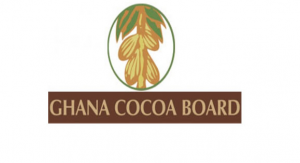The Research and Counselling Foundation for African Migrants (RECFAM) has rescued 84 teenage girls in child marriages in the Kpassa-Nkwanta District of the Oti Region.
The girls are aged between 12 and 15 years.
According to the Director of RECFAM, Dr Alfred Nsodu Mbinglo, the victims, after their first menstruation, were forced into early marriages by their parents.
According to him, the parents engaged in the practice to avoid teenage pregnancies on the part of their children.
“You know, they believe that these children must get married early since some of their senior sisters got pregnant at a tender age” he said.
Dr Mbinglo said some parents in the district were of the view that girls that menstruate early can bring shame of teenage pregnancy to the family and as a result must be sent into marriage before, they start going after men.
Dr Mnibglo added that other parents also give out their girls in replacement of loans and funeral debts.
One of the girls (Grace) whose dream was to become a nurse was faced with two options, to either accept marriage for payments of her father’s loans or maintain her stand.
Her elder sister who was also a victim of early marriage said she tried to resist the decision to be married to a man who already had two wives but had no support from her own people.
“I didn’t want to go but no one supported me so I had to run away with just one dress not knowing where I was going”
According to the RECFAM Director, they rescued 15-year-old Grace and sent her back to the classroom.
“Those that drop out of school for lack of affordable menstrual products, we provided them with the Pride Pads and those who were lured into early marriage, we did our best to rescue them.”
RECFEM with funding from Canada Fund for Local Initiative through the Canadian High Commission in Ghana rescued a total of 84 girls, out of which 68 were sent to school and 16 to learn dressmaking.
Dr Mnibglo called on the Ministry of Gender to take a second look into the education of rural parents in order to save young girls.
“In many cultures, menstrual cycle is seen as a gift and when a girl would menstruate for the first time, it would be celebrated in public. But this again is a problematic view as the menstrual cycle was seen as a boon for reproduction. Even when people celebrated it, they had a reductionist view that a woman’s ultimate goal in life is reproduction.”
Dr Mbinglo added that special attention must be given to dispel the stigma around menstruation along with the provision of menstrual health education in schools and communities.
He called on the Minister of Gender youth and Child Development to enforce laws and educate rural parents to desist from such outmoded act in order to save our nation builders.
RECFAM
Research and counselling Foundation for African Migrants (RECFAM) has established the initial Pride sanitary pads factory in Accra, and the first production sample has already passed the Ghana Standard Authority (GSA) certification test, and RECFAM was issued with GSA certification to produce Pride sanitary pads in Ghana.
RECFAM – Pride Sanitary Pads was SAG-SEED Award Winner for 2017 in Ghana (The Awards for Entrepreneurship in Sustainable Development, an annual awards scheme designed to find the most promising, innovative and locally led start-up eco-inclusive enterprises in countries with developing and emerging economies). A program sponsored by European Union and supported by UNNDP, Switch Africa Green, UN Environment, and Federal Ministry for the Environment, Nature Conservation, Building and Nuclear Safety, UN Women, IUCN, Conservation International and others.
The production of Pride Pads by RECFAM doesn’t only improve the quality of girls’ and women’s lives in rural areas, but also helps create sustainable livelihoods for these women, giving them economic independence, increasing household incomes, and boosting the entire community’s economy and well-being. Pride sanitary pad is branded as pads of the women for the women and by the women.







